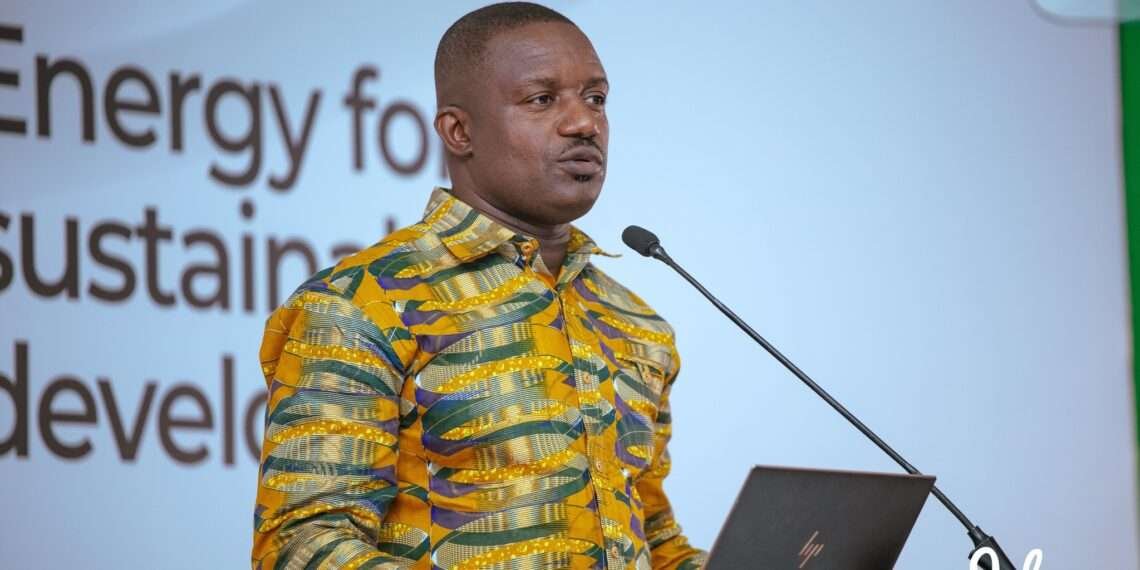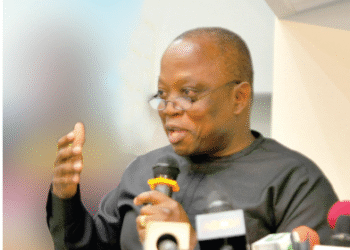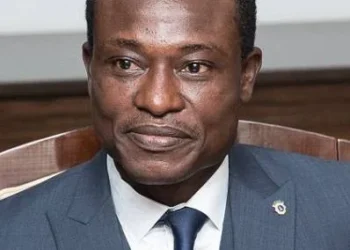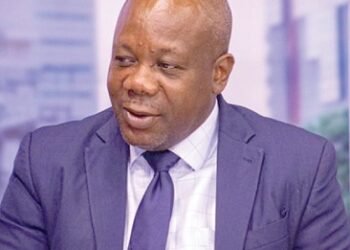The Member of Parliament for Yapei-Kusawgu Constituency and Ranking Member of the Mines and Energy Committee, Honorable John Abdulai Jinapor has strongly criticized the government for mishandling Ghana’s energy sector.
The National Democratic Congress Spokesperson on Energy, in his scathing critique of the government’s mismanagement of the energy sector, linked the recent resignation of the Electricity Company of Ghana (ECG) Managing Director, Mr Samuel Dubik Mahama, to deep-rooted issues of fuel procurement and political interference.
Hon. Jinapor revealed that Mr. Mahama’s decision to step down was influenced by a clash with individuals close to the presidency over the procurement of light crude oil.
“I made a post confirming his resignation about 5 or 10 minutes before the announcement came out. I had gotten information that some people related to the President insisted on procuring light crude oil in a certain manner which Dubik Mahama, the MD for ECG resisted”.
Honourable John Abdulai Jinapor, MP for Yapei Kusawgu Constituency, and Ranking Member of the Mines and Energy Committee of Parliament
The Real Cause of Load Shedding: Fuel Procurement Crisis
Hon. Jinapor emphasized that Ghana’s ongoing load-shedding crisis stems primarily from a shortage of both gas and light crude oil, rather than maintenance issues at the Ghana National Gas Company, as some officials have suggested.
He pointed out that when the Mines and Energy Committee engaged stakeholders earlier in May and June, it was clear that the core issue was inadequate fuel supply, adding that this was aggravated by the government’s failure to enhance the Gas Processing Plant, which has resulted in a 60 million standard cubic feet per day gas deficit.
“This government hasn’t added any infrastructure to the Gas Processing Plant they inherited and so there’s a deficit of about 60 million’s curve. So they have to procure light crude oil at about $40,000,000 every month”.
Honourable John Abdulai Jinapor, MP for Yapei Kusawgu Constituency, and Ranking Member of the Mines and Energy Committee of Parliament
He projected that by the end of 2024, the accumulated debt from these purchases would reach $480 million, stressing that the situation could have been avoided if the government had responded positively to proposals from Tullow Oil to increase gas production by an additional 100 million standard cubic feet per day.
“And so as a result, there’s a deadlock, and we will continue to procure light crude oil. This month, they’ve not been able to procure enough light crude oil. And so there’s a deficit of about 500 megawatts leading to the current load shedding that we are experiencing”.
Honourable John Abdulai Jinapor, MP for Yapei Kusawgu Constituency, and Ranking Member of the Mines and Energy Committee of Parliament
Political Interference in Procurement
The former Deputy Minister of Energy under the erstwhile Mahama’s administration also expressed grave concerns regarding the political interference in the procurement of fuel under the current administration.
According to him, even though by standard practice the Volta River Authority (VRA), as a lead agency in the generation sector, should be the one procuring light crude oil, such practice was side-stepped during Hon, Ken Ofori-Atta’s tenure as Finance Minister.
He claimed that ECG was instead instructed to make these procurements, bypassing the established Cash Waterfall Mechanism—a system that ensures fair distribution of revenue among energy sector players.
He revealed that Mr Dubik Mahama had tried to restore adherence to this mechanism, a move that led to friction with influential individuals within the government and his eventual forced resignation.
“He was determined to do what is proper, what is right, and restore the Cash Water for Mechanism, such that if anybody wanted to buy fuel, it would reflect in the cash waterfall mechanism, and so we’ll know those behind the procurement of fuel so that we can track it.
“But he was asked to exit, and, unfortunately, he has exited. And that is why he cited personal reasons for his decision to exit. But the painful thing is that by the end of the year, we’ll have a debt of about $480,000,000 on account of light crude oil”
Honourable John Abdulai Jinapor, MP for Yapei Kusawgu Constituency, and Ranking Member of the Mines and Energy Committee of Parliament
Financial Strain and Non-Payment to Key Energy Suppliers
Additionally, Hon. John Abdulai Jinapor highlighted alarming details about the government’s failure to meet its financial obligations to key energy suppliers, including Tullow Oil and ENI.
“Since January, not a single dollar has been paid to Tullow for gas supplied,” Jinapor disclosed, adding that ENI, which operates Ghana’s Floating Production Storage and Offloading (FPSO) unit, has similarly not been paid.
As a result, the NDC legislator alleged that ENI has reduced its gas supply, and Ghana is on the brink of defaulting on its $500 million guarantee, which has already been reduced to $120 million.
This inability to secure gas, he noted has forced a heavy reliance on light crude oil, leading to further strain on the energy sector.
According to Hon. Jinapor, the Independent Power Producers (IPPs) are owed approximately $1.2 billion, while the Public Utilities Regulatory Commission (PURC) has already warned that ECG is on the verge of bankruptcy due to its failure to adhere to the Cash Waterfall Mechanism.

Mismanagement and Lack of Accountability
The Ranking Member of the Mines and Energy Committee of Parliament, Hon. John Abdulai Jinapor criticized what he described as the government’s pattern of deflecting blame and peddling false narratives.
Citing a recent press release from the Ghana Grid Company (GRIDCo) and ECG, which attributed the current power outages to challenges at the Gas Processing Plant, he called these claims “inaccurate.”
Hon. Jinapor argued that previous maintenance at the plant did not lead to load shedding, suggesting that the real issue lies with fuel shortages, exacerbated by unpaid debts to gas suppliers.
“Even when Ghana Gas shut down for routine maintenance, we did not experience such severe outages because there was some minimum gas available. The difference now is that there is a shortage of light crude oil, and plants cannot run,”
Honourable John Abdulai Jinapor, MP for Yapei Kusawgu Constituency, and Ranking Member of the Mines and Energy Committee of Parliament
He strongly posited that the situation could have been mitigated if the government had purchased adequate fuel in advance.
Call for Immediate Action
Hon. Jinapor concluded his remarks with a call for the government to remove political interference from the energy sector and allow sector agencies, such as PURC and ECG, to operate independently.
He also urged the government to resolve its payment issues with Tullow and ENI to restore stable gas supplies and prevent further deterioration of the sector.
“Ghanaians deserve a functional, transparent, and accountable energy sector. The political interference and lack of integrity currently plaguing the sector must be eliminated if we are to see any meaningful progress,” he asserted.
With Ghana facing a potential energy sector collapse due to mounting debts and persistent fuel shortages, Hon.Jinapor’s comments underscore the urgency of addressing the structural and financial mismanagement affecting the country’s power supply.
READ ALSO: Efia Odo Criticises Nana Kwame Bediako Over Comments of Arrested Protestors























